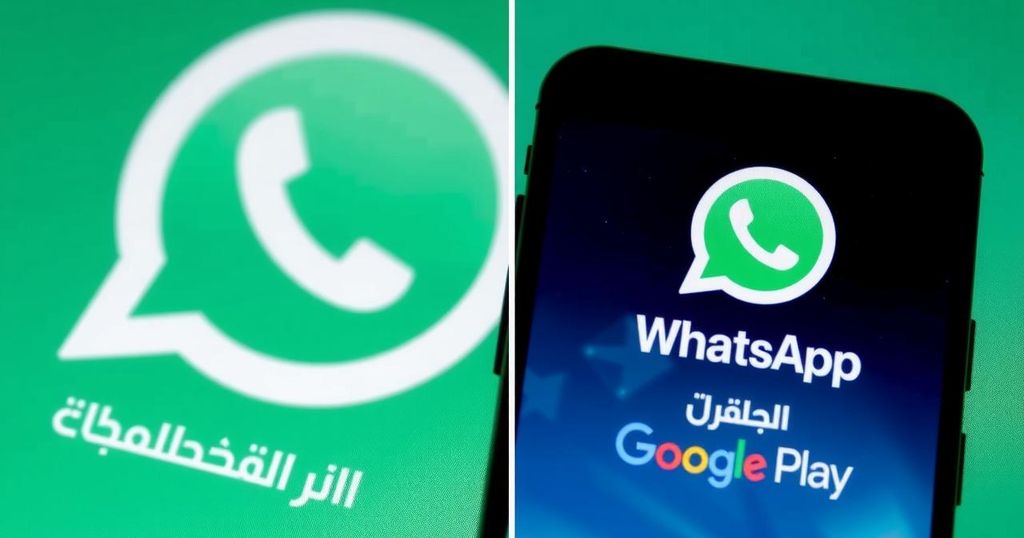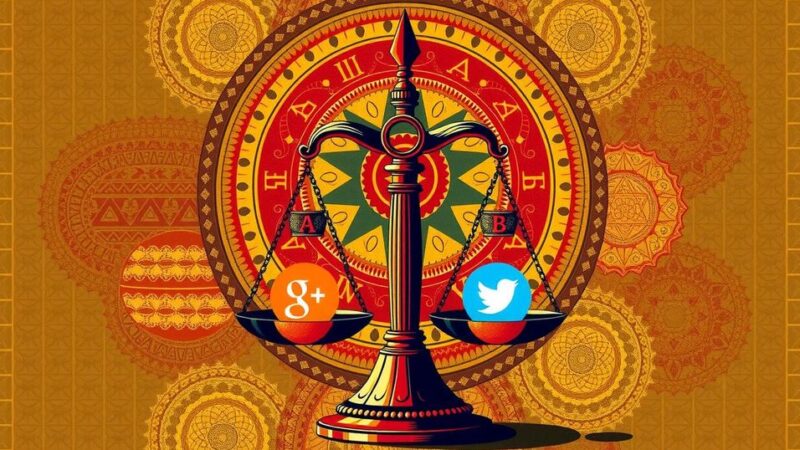Iran has lifted bans on WhatsApp and Google Play, indicating a potential easing of severe internet restrictions, as part of a broader context involving recent protests against the government. Additionally, the country has paused the implementation of a stricter hijab law, reflecting attempts to negotiate internal and global pressures on women’s rights.
The Iranian government has lifted bans on the popular messaging platform WhatsApp and the Google Play store, as reported by state media. This decision marks a significant step towards lessening the strict internet restrictions that are enforced in the country. Following a meeting led by President Masoud Pezeshkian, the Iranian news agency IRNA announced that a majority vote allowed access to these foreign platforms. Officials noted the importance of this development as a move towards removing online limitations in Iran.
These internet restrictions have been a point of contention, particularly seeing that many Iranians adeptly utilize virtual private networks to circumvent censorship that targets platforms like Facebook and YouTube. Iran’s communications minister highlighted that this moment signifies the beginning of improved internet access for citizens. Reportedly, social media played a critical role in facilitating anti-government demonstrations earlier.
In conjunction with the lifting of these bans, Iran had recently put a pause on plans to implement a stringent new law pertaining to women’s hijab regulations. This controversial legislation, which stipulates harsher penalties for non-compliance, was initially passed by parliament last September but has now been put on hold. Shahram Dabiri, the vice president for parliamentary affairs, confirmed that the parliament will not move forward with referral of the law to the government, granting the president leeway in the matter. Should the bill have proceeded, it would have necessitated swift government action, constraining the president’s options to challenge it.
The interplay between lifting digital restrictions and the potential ramifications of the hijab law indicates a complex navigational process for the Iranian government, attempting to balance internal pressures with the international community’s expectations regarding human rights and freedoms.
The lifting of the bans on WhatsApp and Google Play represents a significant shift in Iranian internet policy, noteworthy in a nation where governmental oversight of online activities is exceedingly oppressive. The move comes amid heightened global scrutiny of freedom of expression in Iran. In context, the United States has championed efforts for tech companies to assist in circumventing stringent online censorship, a call which resonates amid the backdrop of unrest and civil protests within the country. The suspension of the new hijab law further illustrates the dynamic tensions between the Iranian leadership and societal demands for greater liberties, particularly regarding women’s rights and personal freedoms.
In conclusion, Iran’s recent decisions to lift the bans on WhatsApp and Google Play and to pause the implementation of a new hijab law signify critical steps towards moderating its strict internet governance and addressing domestic pressures. This dual action reflects a crucial moment in Iranian socio-political dynamics, balancing traditional governance with modern demands for freedom and individual rights. Each of these developments may serve to ease internal tensions while responding to external expectations for improved human rights.
Original Source: www.hindustantimes.com






